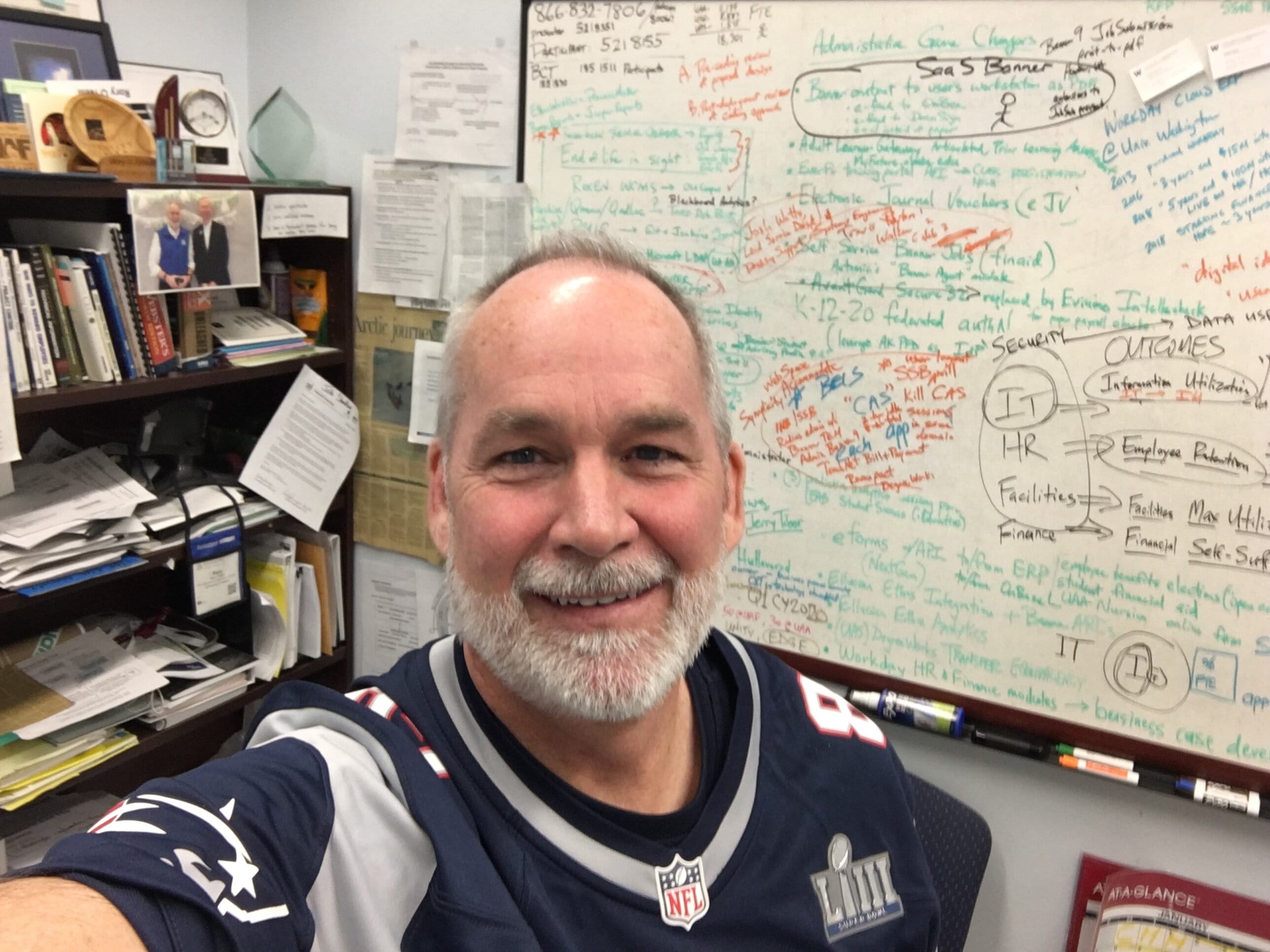Rory O’Neill: Expanding access to data to improve UA
Hailing from Philadelphia via Ireland on both sides, Rory O’Neill grew up in the middle-Atlantic
region where his parents and siblings still reside. In 1993 he and a brother visited
another brother in Ketchikan, and the three of them toured the state. Tourists believed
that O’Neill 's duster, cowboy hat and command of a gold pan and draft horses meant
he was an Alaskan. Two brothers returned home, one decided to abandon his tenure track
biomedical engineering position at Johns Hopkins.

On that visit O’Neill also met the woman he’d marry on St. Patrick’s Day 1994. For four years O’Neill and his wife Colleen made lasting friendships with Alaskans from Homer to the North Slope while learning how to sustain a remote, full-featured lodge inside Denali Park. The experience of being responsible for the physical plant, electrical generators and mechanical systems, guest housing and employee housing, bulldozers, backhoes and material logistics in support of pre- and post-season projects cemented O’Neill's interest in Alaska.
The first of four daughters forced O’Neill back into professional, year-round employment. He took a job in 1998 as a systems engineer for UAF’s satellite data download and archive facility. When outside forces reduced demand for those services, O’Neill joined Statewide OIT in 2004 as manager of the Banner programming group (EAS).
Seven months later he was appointed interim director for OIT Applications Services, and then succeeded as executive director for UA’s enterprise software when Statewide and UAF’s IT departments were consolidated.
“I am privileged by my position to directly support the vision of cabinet and sub-cabinet leaders at UAA, UAF, UAS and Statewide and in the process I get to know those persons and enjoy their successes. That makes my university job awesome,” says O’Neill.
Attracted to management, O’Neill served as UAF’s Staff Council President and the UA Staff Alliance chair. The experience elevated O’Neill's regard for the breadth of UA’s mission, the role of a central administration and the importance of everyone who chooses to work here.
“The public sector is not the place to chase technology fads or resume jewelry, instead thrift is called for,” said O’Neill. “In times of declining revenues it is even more important to make the right choices with our limited budget. We are in the service sector. An excellent postsecondary education comes from dedicated, highly skilled university personnel, not new buildings or name brand equipment.”
Committed to continual education, O’Neill and his wife Colleen each earned another degree (Go Nanooks!). Last December, Colleen joined Northern Star Resources Pogo, the Australian company staffing-up the industrial scale underground gold mine near Delta. Eight days on and six days off, living at the mine means 12+ hour workdays.
O’Neill says Interior Alaska is an awesome place to raise a family. Born in Fairbanks, all four daughters know how to find, gather and turn berries into jelly and jam; safely dipnet, bonk, filet and vacuum pack salmon; glove-up, butcher and vacuum pack moose; and help their parents build a woodshed, dry cabin or house. Their oldest, Kiara, is thriving in UAF’s class of 2020 electrical engineering program and just received numerous job offers from the country’s leading aerospace companies. Cloda is studying business at UAA KPC and transferring to KU Lueven in Brussels, Belgium. Bridget is applying to colleges while completing the state’s Certified Nursing Assistant program. Maisy is the youngest and graduates West Valley high school in ’22 and college in ’26 (four years!).
O’Neill’s prescription for UA is for everyone to leverage broad data access to improve the university.
“Please help me pivot UA away from keeping data safe by compartmentalizing the crap out of it, in effect preventing its use. Instead everyone needs to be using the university’s data. That includes students receiving real-time degree progress data to make behavior corrections. Data mastery is not only a required organizational competency for accreditation, it is the uncontested emerging differentiator for university excellence,” said O’Neill.
